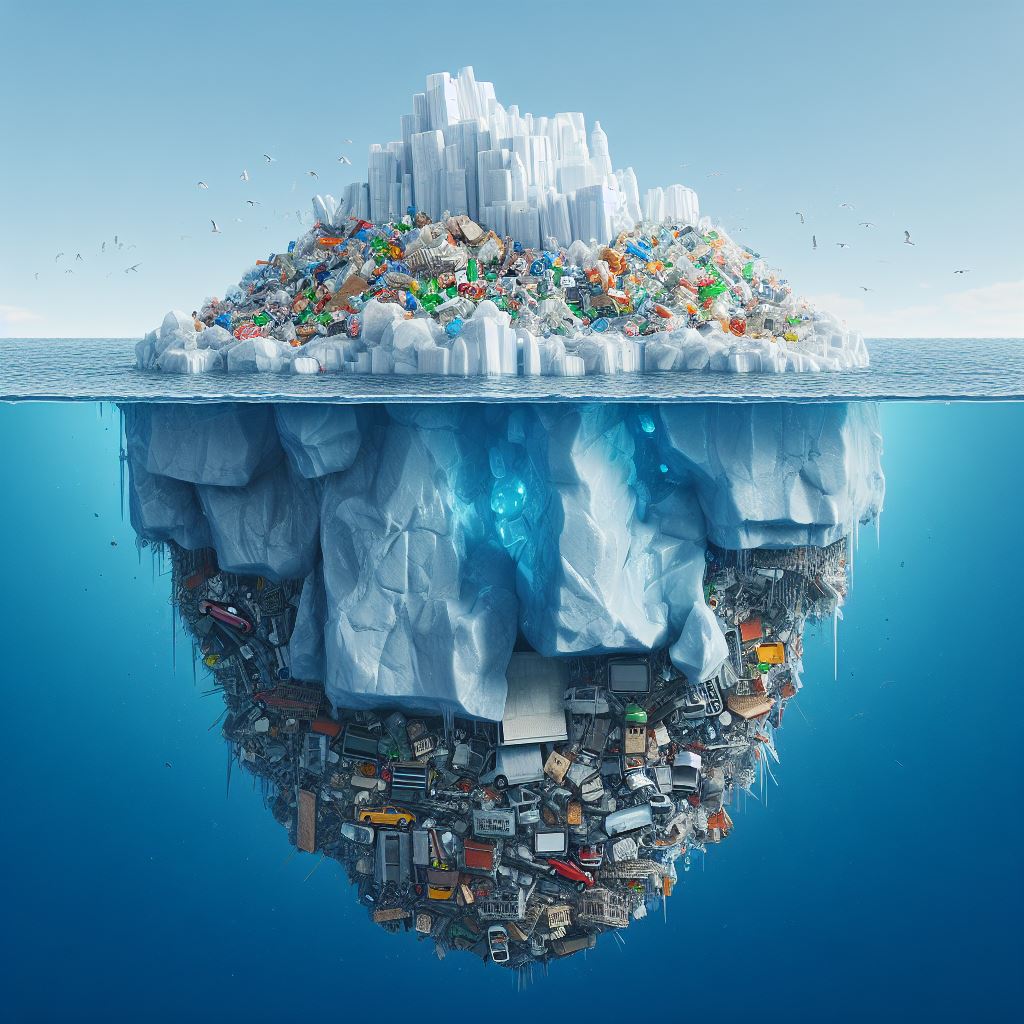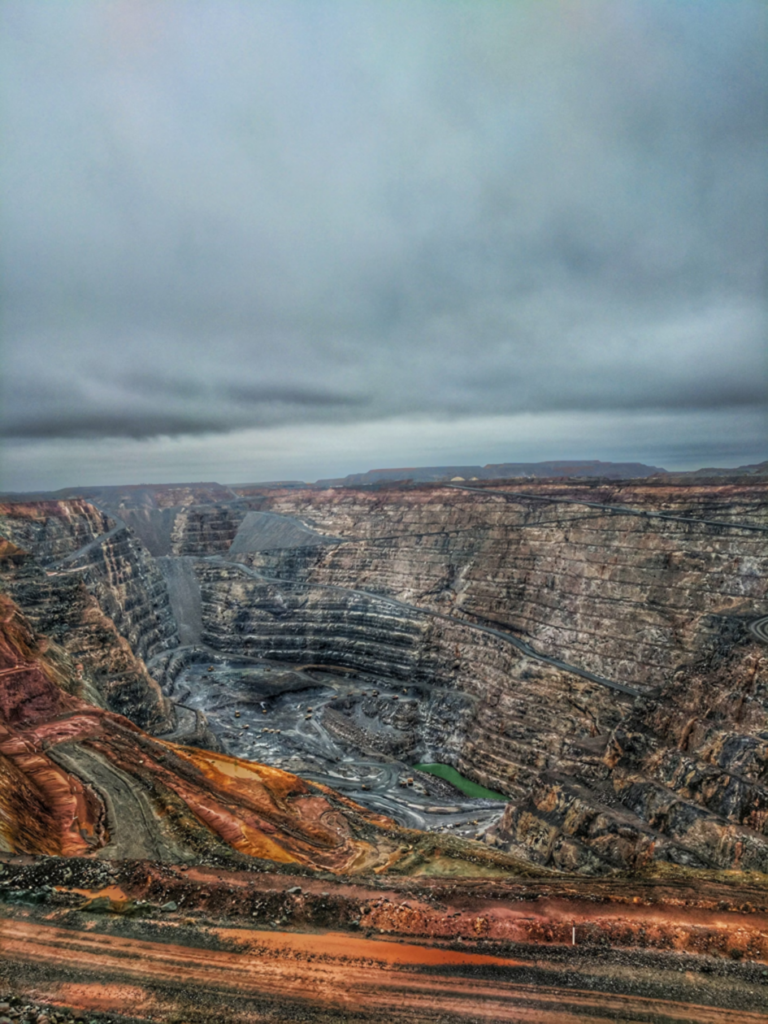Introduction
In a world increasingly aware of its environmental impact, discussions about recycling often focus on household waste processing. However, beneath this visible layer lies a colossal, often overlooked challenge: the recycling of industrial, construction and mining waste. At MATVISION, our mission is to contribute in adressing the hidden part of this iceberg, transforming industrial waste into valuable resources through smart sorting solutions.

Beyond pizza boxes and plastic bottles

Contrary to popular belief, household waste accounts for only about 10% of the total waste produced annually in Europe. The bulk of this waste originates from industries such as construction (37.5%), mining and quarrying (23.4%), and manufacturing (10.6%). These waste streams are diverse and complex, requiring tailored solutions for effective recycling. The following chart from Eurostat illustrates the distribution of waste generation by economic activities and households in the EU for 2020 [1]:
Quantifying waste serves an essential purpose in assessing environmental impact. However, focusing solely on weight fails to paint the complete picture: avoiding the disposal of a ton of plastic waste carries far more significance than a ton of inert rocks.
MATVISION’s mission
At MATVISION, we are committed to addressing the nuanced challenge of industrial waste recycling. We specialize in recycling shredder residues from old cars, washing machines, Waste Electrical and Electronic Equipment (WEEE) and valuable construction waste. These waste streams, including Automotive Shredder Residues (ASR), contain valuable non-ferrous metals (commercially known as ZORBA or ZURIK), aluminum alloys, stainless steel alloys, high-performance plastics, batteries, rubbers, and more. Their effective recycling presents both a significant challenge and a tremendous opportunity due to their richness in critical raw materials.
Our goal is to keep these valuable materials within Europe, reducing the ecological footprint associated with transporting waste overseas and preserving critical raw materials.
High quality sorting with AI, sensors & robotics
MATVISION offers cutting-edge sorting systems that leverage high-speed sensors, artificial intelligence, and robotics. Our multi-sensor and multi-output capabilities allow us to achieve great sorting accuracy while ensuring that a wide range of materials can be effectively separated and processed in one single pass. These solutions are designed to address the specific challenges faced by two primary types of industry:
1. Recycling industries – helping them extract resources from our waste
This includes companies that recycle and process old cars, discarded washing machines, and other end-of-life products. During the recycling process, shredding breaks down these items, releasing various components and materials. However, this also results in a mixed and contaminated waste stream, creating the need for efficient sorting. Our advanced sorting systems increases the value of the sorted waste, ensuring that each pure output can be used as raw materials in the local circular economy, supporting our industry while significantly reducing the environmental impact related to their activities. For exemple, according to the European Recycling Industries’ Confederation (EURIC), 95% less energy is consumed when recycling aluminium compared to primary production [2].
Image on the right: Open-pit gold mine in Kalgoorlie, WA, Australia by Matthew de Livera (Unsplash). Reusing metals helps reduce the environmental impact of mining operations.

2. Industrial manufacturers – helping them use more recycled materials
For industrial manufacturers who aim to substitute primary raw materials with recycled ones, quality and consistency are a must. While the production of many goods has been outsourced outside Europe, the remaining part of our industry relies on producing high-quality products with very high standards. This does not align well with the integration of waste as a substitute for pure raw materials. However, there is a surge in EU incentives to integrate up to 25% of recycled content in products [3]. MATVISION provides solutions that ensure the high quality of recycled materials by detecting contaminants and sorting materials before they enter the production process. This enables manufacturers to incorporate more recycled materials into their products without compromising on quality, thereby reducing their carbon footprint and ecological impact.
Our solutions are designed to be adaptable to the specific needs of different industrial sectors, providing unique, tailored approaches for each type of waste. We’ll delve deeper into our multi-sensor and multi-output capabilities in an upcoming article, so stay tuned!
Join us
If, like us, you are convinced that it is our sorting technologies that we should ship to the other side of the world instead of our waste, make sure to follow us and reach out to see how we can help you solve your sorting problems.
In the coming series of articles, we’ll take you behind the scenes of the recycling industry, describe what makes our technology different, and talk about upcoming trends and events in the recycling industry, so make sure to stay tuned. Suscribe to our newsletter here 🚀
Sources
[1] Eurostat – Waste statistics : https://ec.europa.eu/eurostat/statistics-explained/index.php?title=Waste_statistics, last edited on 22nd of August 2023.
[2] European Recycling Industries’ Confederation (EURIC) – https://euric.org/what-we-recycle/metals-ferrous-and-non-ferrous, consulted on 27th of June 2024.
[3] EU Proposal for the End of Life Vehicle (ELV) Regulation https://environment.ec.europa.eu/topics/waste-and-recycling/end-life-vehicles_en, consulted on 27th of June 2024.
- Matvision at Pollutec Paris on Nov. 26 and 27 - 22 November 2024
- Matvision at Aluminum Giga Casting Seminar by EURECAT - 13 November 2024
- Targetting the hidden part of the waste iceberg - 1 July 2024